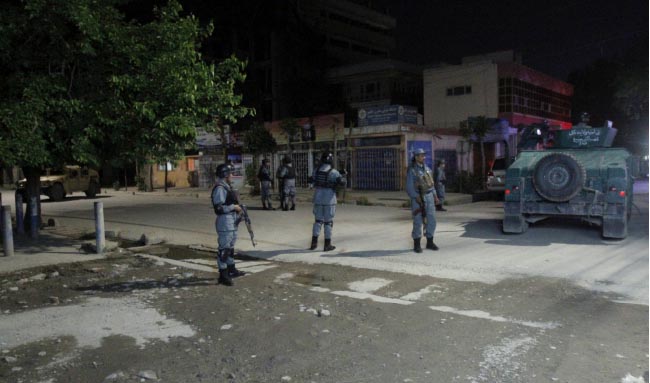People’s obedience to the government is on the condition that it should protect physical and mental peace of the society and pave the ground for development through efficient use of economic, political and administrative resources. It is possible if poverty, instability, discrimination, and unemployment come to an end and the public be able to participate in national processes.
Establishing a strong, continued relation and sustainable interaction among government institutions, social organizations and private sectors will smooth the path for the implementation of the government’s agenda. In addition to being influential and significant for the efficiency of the state’s policy, this will also be accounted as democratic values and principles. The political system in Afghanistan is based on democracy which has been embodied in the constitution as the state’s rule of law.
Based on democratic principles, the power should be decentralized and one’s desire for monopolizing power or wealth need to end. That is to say, the separation of power is recognized as a principle and national power is distributed constitutionally among the legislative, executive and judicial systems. What’s more, a logical balance among the three mentioned systems should be formed so as to prevent from the centralization of power in the hand of the executive system. The reason behind distribution of power among the three systems is establishing a logical balance and prevent from individual and collective disorders. Furthermore, the balance among the governmental, civil and private institutions will strengthen order in a community and pave the path for a peaceful and quiet life. It goes without saying that if the balance of power is ruined, it will lead to two horrible consequences: Institutionalizing democracy will be hampered on the one hand, the process of cooperation and interaction among different institutions will be eroded on the other hand. So, the wall of mistrust between the nation and state will grow taller.
The principle of separation of power is included in Afghan Constitution and it is observed up to now. Our political system is formed of three principles: government, parliament and judicial power and their authorities are specified in the Constitution and all three are supposed to identify their realm of authorities on the basis of law. There seems no legal problem in this regard since the law has specified the authorities and responsibilities of all three powers. However, the problems handed down from the past political culture and the inabilities that can be observed in the current government, some of the powers could not fulfill their duties to the public satisfaction. The true sense of balanced separation of power is not witnessed in the country, but this can be reformed in long term through strengthening legal mechanisms.
Currently, the problem lies regarding the way of interaction among three organizations: state, civil society, and private sector. Within the past years, the government was not able to establish an organic and stable relation among state, civil society, and private sectors. In another item, although the growth and activity of civil society and media have been impressive over the past fifteen years due to the presence of the international community; a reasonable, stable and organized interaction among the civil society, the media and government institutions was not formed. Needless to say, the government paved the ground for the activities of civil society and the media and many private media are operating freely across the country, yet a constructive interaction among the three institutions is lacking.
For instance, the civil society seems to act as an opponent to the government rather than a cooperative institution, and the media criticize the government severely. This issue reflects the fact that the relation between social-cultural institutions and government has not been formed in its true meaning. Civil society and social organizations can organize the public and spread awareness among them regarding their rights and responsibilities. They have to galvanize the citizens to take active part in social and political life and reinforce the spirit of brotherhood, unity, and solidarity among them which will necessarily lead to interaction and tolerance.
The national media claimed that 2016 was the worst and the most violent year for journalists and the government institutions were widely involved in this issue, according to the reports. Few days ago, a media staff was battered by a member of police. To one’s unmitigated surprise, both sides claim, in such issues, that they are right and accuse one another of breaking the law.
All in all, the problematic issue among the government and social institutions and the media bespeak of the fact that there is much left to be done in this respect. To sum up, either the realm of authorities, responsibilities and activities of these institutions was not identified in terms of mutual interaction or sufficient awareness was not spread in this regard.
The mutual interaction between private sectors and government is more ambiguous. The state economic institutions yet to organize its cooperation with private sectors. In other words, the government institutions ignored that private sectors can play a constructive role in production, employment, and development of human resources and pave the ground for development of economic infrastructures in the country.
The government will be able to establish this interaction if it attracts the public trust. In short, if national policies are formed on the basis of law, democracy and social justice, the fair distribution of power and wealth is accepted as a principle among different layers of the society, the impeccable implementation of law will be possible in a society and the cornerstone of cooperation and interaction will be laid between the nation and state.
Home » Opinion » Flawed Mechanisms in Political Interactions
Flawed Mechanisms in Political Interactions
| Jafar Mohammadi

